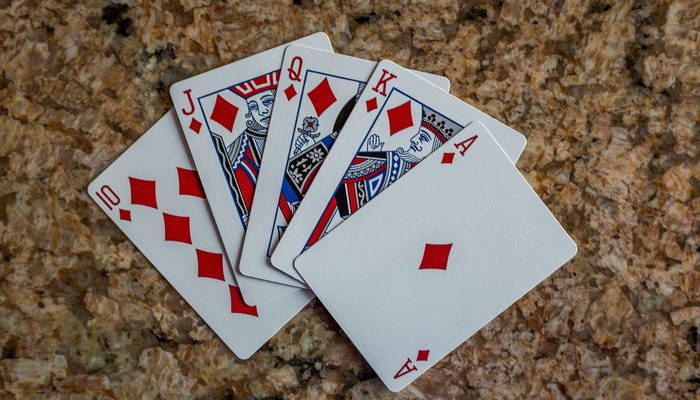Gambling addiction, also known as compulsive gambling or gambling disorder, is a serious problem affecting millions of people worldwide. It is a behavioral addiction characterized by the urge to gamble despite negative consequences, such as financial problems, relationship issues, and work-related difficulties.
In this article, we will discuss the 10 most effective ways to treat gambling addiction. From therapy to self-help techniques, we will explore various options that can help individuals overcome their addiction and maintain long-term recovery.
10 – Cognitive Behavioral Therapy (CBT)
Cognitive Behavioral Therapy (CBT) is a widely used therapeutic technique for treating gambling addiction. It aims to identify and change negative thoughts and behaviors that contribute to the addiction. CBT sessions typically involve a therapist helping the individual to identify negative thoughts and behaviors and teaching them strategies to replace these with positive ones. CBT has been found to be highly effective in treating gambling addiction.
09 – Motivational Interviewing (MI)
Motivational Interviewing (MI) is another therapeutic technique that has been found to be effective in treating gambling addiction. It is a client-centered approach that aims to increase an individual’s motivation to change their behavior. The therapist works collaboratively with the individual to identify their reasons for wanting to stop gambling and helps them to develop a plan to achieve their goals.
08 – Support Groups
Support groups, such as Gamblers Anonymous, can be a valuable resource for individuals struggling with gambling addiction. These groups provide a supportive environment where individuals can share their experiences and learn from others who have been through similar struggles. Support groups also offer a sense of community and accountability, which can help individuals maintain their recovery.
07 – Medications
Certain medications have been found to be effective in treating gambling problem. These include antidepressants, mood stabilizers, and additionally opioid antagonists. These medications work by reducing the urge to gamble and addressing underlying mood disorders that may contribute to the addiction. However, medication should always be used in conjunction with therapy and under the supervision of a medical professional.
06 – Self-Help Techniques
There are many self-help techniques that individuals can use to manage their gambling addiction. These include setting limits on time and money spent gambling, using self-exclusion programs, and practicing mindfulness techniques. These strategies can help individuals gain control over their behavior and maintain their recovery at the same time.

05 – Holistic Approaches
Some individuals prefer a holistic approach to treating their gambling problem. These include alternative therapies, such as acupuncture and yoga, which can help individuals manage stress and anxiety, which may contribute to the addiction. However, it is important to note that these approaches should be used in conjunction with evidence-based treatments.
04 – Financial Counseling
Financial counseling can be an important part of treating gambling addiction, as financial problems are a common consequence of the addiction. Financial counselors can help individuals create a budget, pay off debt, and develop a plan to manage their finances moving forward.
03 – Family Therapy
Family therapy can be helpful for individuals whose gambling addiction has had a significant impact on their family relationships. Family therapy aims to improve communication and understanding among family members and develop strategies to support the individual in their recovery.
02 – Lifestyle Changes
Making lifestyle changes, such as exercising regularly, getting enough sleep, and eating a healthy diet, can be helpful in managing gambling habit. These changes can improve mood, reduce stress, and promote overall well-being.
01 – Education
Finally, education about gambling addiction and its consequences can be a powerful tool in preventing and treating the addiction. Individuals can learn about the risks of gambling, warning signs of a gambling problem, and strategies to manage their behavior.
In conclusion, gambling addiction is a serious problem that can have devastating consequences. However, there are many effective ways to treat the addiction, including therapy, support groups, medications, self-help techniques, holistic approaches, financial counseling, family therapy, lifestyle changes, and education. It is important for individuals struggling with gambling addiction to seek help and support from professionals and loved ones. With the right treatment and support, individuals can overcome their addiction and maintain long-term recovery.
FAQs about Gambling Addiction:
Q: Can gambling addiction be cured?
A: While there is no known cure for gambling addiction, it can be effectively treated with therapy, support groups, and other evidence-based approaches.
Q: Is it possible to gamble responsibly?
A: Yes, it is possible to gamble responsibly. Setting limits on time and money spent gambling, and practicing mindfulness techniques can help individuals gain control over their behavior.
Q: Are all types of gambling equally addictive?
A: No, some types of gambling, such as slot games, have been found to be more addictive than others. It is important to be aware of the risks associated with different types of gambling and to seek help if necessary.
Q: Are there any gambling tips that can help prevent addiction?
A: Of course, setting limits on time and money spent gambling, and avoiding chasing losses can help prevent gambling addiction. Additionally, it is important to gamble responsibly and seek help if gambling becomes a problem.
Q: Can financial counseling really help with gambling addiction?
A: In general, yes. Financial counseling can be an important part of treating gambling addiction, as financial problems are a common consequence of the addiction. Financial counselors can help individuals create a budget, pay off debt, and develop a plan to manage their finances moving forward.


